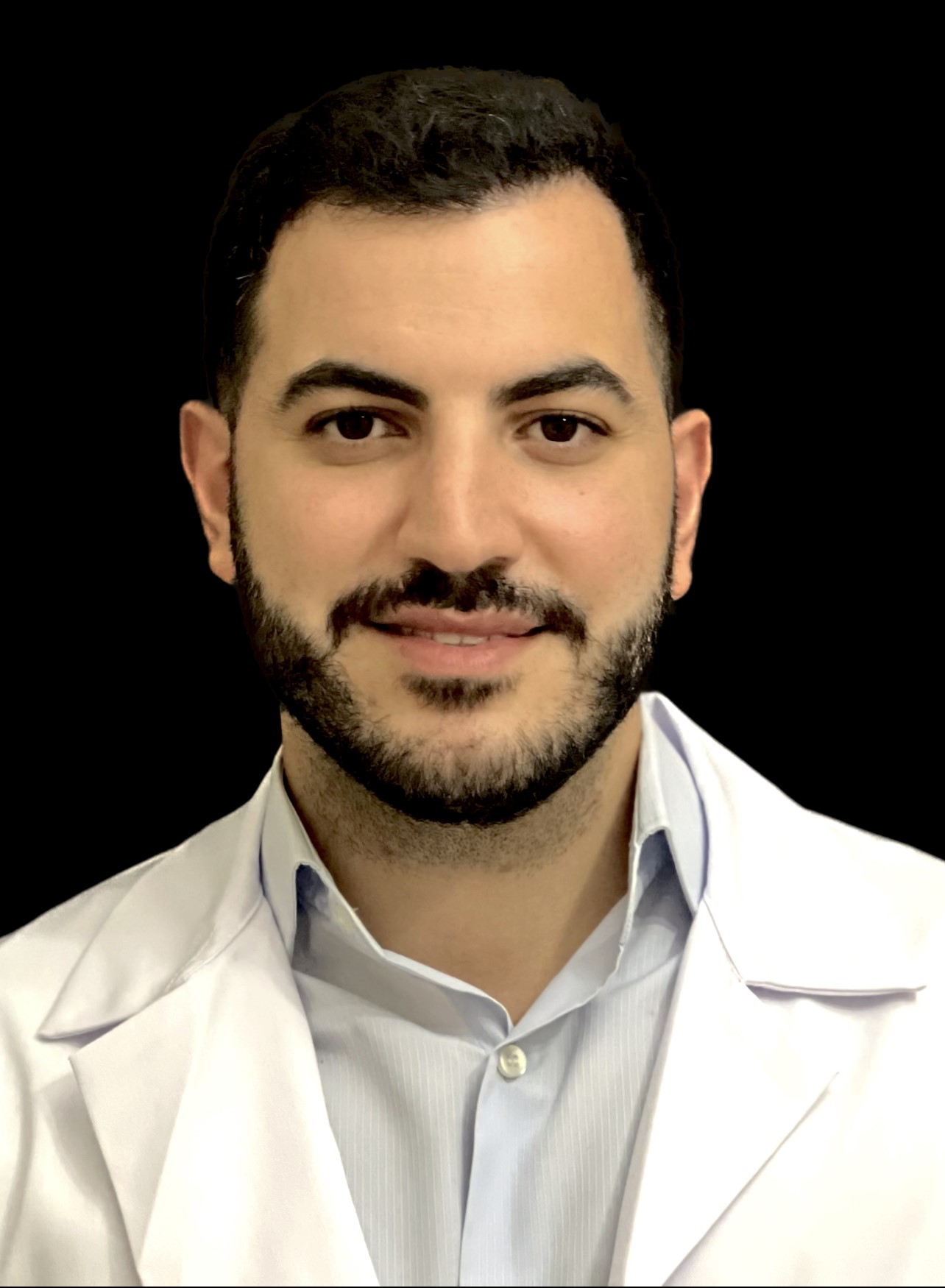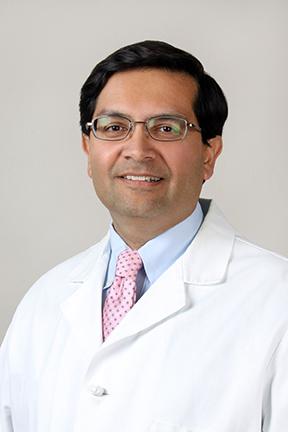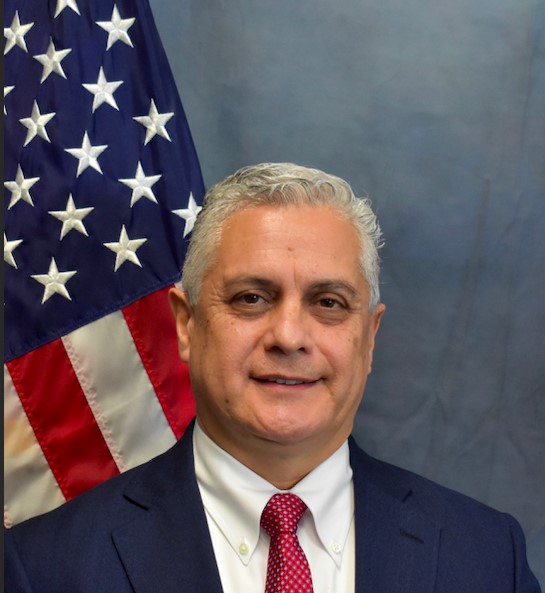Speakers and Abstracts
(Speakers are listed in the order of the programs’ sessions)Lecture 1: Overview of Cutaneous Manifestations of Rheumatologic diseases


Jinane El Khoury Okais, MD
Dr. El Khoury Okais serves as a clinical assistant professor and program director in the Department of Dermatology at the Lebanese American University Gilbert and Rose-Marie Chagoury School of Medicine. She practices at the Lebanese American University Medical Center Rizk Hospital in Beirut and the Lebanese American University St. John Hospital in Jounieh. Her expertise lies in treating bullous diseases and vulvar dermatology. Dr. El Khoury Okais has authored numerous studies and holds a particular research focus on body dysmorphic disorder in dermatology patients.
Abstract
The integumentary system is heavily affected in diseases such as lupus, dermatomyositis and scleroderma. During this review, we will go over some of the cutaneous, mucosal and nail changes that can be clues to the diagnosis of rheumatological disorders.
Lecture 2: Scalp Manifestations of Rheumatologic Diseases

Elie Saliba, MD
Dr. Saliba serves as an assistant professor of clinical medicine in the Dermatology Department at the Lebanese American University Gilbert and Rose-Marie Chagoury School of Medicine.
After graduating from the Lebanese American University School of Medicine in 2016, Dr. Saliba completed his Dermatology residency in 2020. He then pursued further training in Dermatopathology at Boston University and Rheumatologic Dermatology/Immunodermatology at Brown University in the United States.
Dr. Saliba has authored over 30 peer-reviewed articles, chapters, and abstracts. He has been honored with multiple scholarships and awards, and has presented his research at symposia and meetings both in Lebanon and internationally. His research interests include connective tissue diseases, hair disorders, and dermatopathology.
Abstract
Scalp involvement is a common yet underrecognized feature of rheumatologic skin diseases, with diverse clinical presentations and implications for patient care.
Specific entities such as lupus erythematosus, dermatomyositis, systemic sclerosis, rheumatoid arthritis, and psoriasis exhibit distinct scalp manifestations, reflecting disease activity and response to treatment.
Dermatologists play a pivotal role in recognizing and characterizing scalp manifestations, while collaboration with rheumatologists facilitates integration of systemic treatment approaches and monitoring of disease activity.
Lecture 3: Cutting Advances and Clinical Pearls from the Multidisciplinary Rheumatology Clinic

Abrar A. Qureshi, MD, MPH
Dr. Qureshi is chief of the department of dermatology at Rhode Island Hospital. He is responsible for managing clinical services, educational and research activities and administration of the department of dermatology. He is also the chair of dermatology at The Warren Alpert Medical School of Brown University.
Prior, Qureshi served as associate physician in the department of dermatology at Brigham & Women’s Hospital and the Dana-Farber Cancer Institute. He has also held academic appointments at Brigham & Women’s Hospital, Massachusetts General Hospital and the Boston Veterans Administration Hospital.
He received his medical degree from Aga Khan University in Karachi, Pakistan, and his master of public health degree in clinical effectiveness from the Harvard School of Public Health. He completed his internship in internal medicine at Beth Israel Deaconess Medical Center, his residency in dermatology in the Combined Harvard Residency Training Program and a research fellowship at Massachusetts General Hospital.
He has received numerous awards, among them: several mentorship awards from the Medical Dermatology Society, and the Outstanding Service Award and Diversity Mentorship Award from the American Academy of Dermatology.
He is a member of numerous professional organizations, including the Society for Investigative Dermatology, the Society for Epidemiology Research, the American Dermato-Epidemiology Network, the American Association for Cancer Research and the North American Rheumatic Dermatologists.
His research interests include tele-dermatology, skin cancer, vector-borne illnesses and psoriasis.
Abstract
This lecture will focus on new drugs for old diseases, including the use of novel Janus Kinase inhibitors in skin and rheumatic diseases. We will explore examples of new monoclonal medications for dermatology indications as well as provide a year in review for FDA-approved medications in the United States.
Lecture 4: Rheumatology for the Dermatologist: Point-of Care Ultrasound (POCUS) in the Derm/Rheum Clinic

Anthony M. Reginato, MD, PhD
Dr. Reginato is the Interim Director of the Division of Rheumatology and Director of Rheumatology Research and Musculoskeletal Ultrasound at the Warren Alpert Medical School of Brown University. Concurrently, he serves as the Chief of the Division of Rheumatology at the Providence Veteran Affairs Medical Center and as an Attending Physician in Rheumatology. He is also the Co-Director of the Lifespan Skin and Musculoskeletal (SAM) Center at Rhode Island Hospital & Providence.
In addition to his clinical roles, Dr. Reginato holds the position of Associate Professor of Medicine in the Division of Rheumatology at the Warren Alpert Medical School of Brown University.
Dr. Reginato completed his undergraduate studies in Biology at Franklin and Marshall College, where he graduated with honors and made the Dean’s List. He then pursued graduate studies in Biochemistry at Hahnemann University Graduate School and received his Ph.D. in Human Anatomy and Structural Biology from the University of Pennsylvania.
After obtaining his medical degree from the University of Pennsylvania, Dr. Reginato underwent post-doctoral research training at Thomas Jefferson University and Harvard Medical School. He completed his Internal Medicine residency at Yale-New Haven Hospital, followed by a clinical and research fellowship in Rheumatology, Allergy, and Immunology at Massachusetts General Hospital.
Throughout his career, Dr. Reginato has been dedicated to advancing rheumatology through both clinical practice and research, making significant contributions to the field.
Abstract
At the conclusion of this session, participants will gain familiarity with various aspects of rheumatological evaluation in patients presenting with both skin disease and joint symptoms. Additionally, they will learn how Point-of-Care Ultrasound (POCUS) can assist in diagnosing and managing cutaneous diseases with musculoskeletal manifestations. The session will also highlight the utility of high-frequency ultrasound in Dermatology and Rheumatology clinics. Moreover, attendees will gain insights into managing patients with multi-system diseases, deciphering the nuances involved in their treatment and care.
Lecture 5: Lasers to Treat Cutaneous Manifestations of Rheumatologic Diseases

Zeina Tannous, MD
Dr. Tannous is a tenured Professor and Chair of Dermatology at the Gilbert and Rose-Marie Chagoury School of Medicine of the Lebanese American University (LAU) and Chief of Dermatology at LAU Medical Center-Rizk Hospital. She is also a Dermatology faculty member at Harvard Medical School. A graduate of the American University of Beirut School of Medicine, Dr. Tannous joined the Harvard Medical School for a Dermatology residency and three fellowships in Dermatopathology, Mohs Micrographic and Dermatologic Surgery, and Laser and Cosmetic Dermatology. She is board certified in the United States in Dermatology and Dermatopathology.
Dr. Tannous has published over 70 peer-reviewed articles, reviews, chapters, and abstracts. She has also co-authored the Cosmetic and Laser Dermatology textbook which contains over 600 clinical photographs and has been translated to both Korean and Greek. Subsequently, she served as the first author of the second edition of this textbook. She has also authored the Comprehensive Textbook of Cosmetic Dermatology, Laser and Energy-Based Therapies that was published in 2022. Dr. Tannous has served as a guest editor of Lasers in Surgery and Medicine journal where she serves as an editorial board member. Dr. Tannous is a member of multiple prestigious dermatological and laser societies including American Academy of Dermatology, American Society for Laser Medicine and Surgery, European Society for Laser Dermatology, Lebanese Dermatologic Society and Alpha Omega Alpha Honor Medical Society.
Dr. Tannous has presented over 150 lectures and seminars in regional, national, and international meetings on the topics of Dermatology, Dermatopathology, Laser Surgery, and Dermatologic Surgery. Her teaching record includes numerous local contributions in the form of grand rounds and presentations to faculty, residents, medical students and pharmacy students. She has supervised and trained significant number of fellows, residents, and medical students both in the United States and in Lebanon.
Dr. Tannous has assumed multiple leadership roles throughout her academic career. She has served as a program co-chair in multiple national and international meetings. She has also served as Associate Program Director for Dermatopathology in the Dermatology Department at Harvard Medical School. She was elected in November 2018 as the founding chair of the Arab Board of Cosmetic Dermatology. She subsequently developed and implemented the fellowship program goals and objectives for training in Cosmetic Dermatology and Lasers, as a subspecialty under the Arab Board of Dermatology, and designed the entire didactic and training curriculum. Dr. Tannous is currently the founding chair and the residency program director of the Dermatology Department at the Lebanese American University School of Medicine.
Dr. Tannous has served as a principal investigator on multiple studies, and her research has resulted in three patents. Dr. Tannous’ research interests include the application of lasers and light sources in the treatment of dermatologic conditions, including hemangiomas, portwine stains and skin cancer, as well as non-invasive imaging of skin. She has been exploring the treatment of basal cell carcinoma with vascular-specific lasers and her work has resulted in multiple publications in this area.
Abstract
Connective tissue diseases (CTD) including lupus erythematosus (LE), morphea and psoriasis are characterized by unique skin manifestations. These cutaneous manifestations can significantly impact patients’ quality of life due to their associated symptoms and cosmetic disfigurement and are often resistant to conventional therapy. The emergence of laser therapy offers a promising alternative for managing CTD skin manifestations, potentially providing more targeted and effective treatment with fewer side effects.